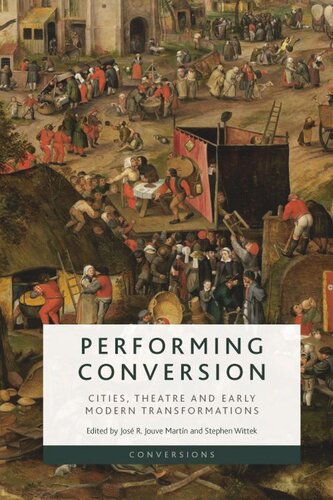

Most ebook files are in PDF format, so you can easily read them using various software such as Foxit Reader or directly on the Google Chrome browser.
Some ebook files are released by publishers in other formats such as .awz, .mobi, .epub, .fb2, etc. You may need to install specific software to read these formats on mobile/PC, such as Calibre.
Please read the tutorial at this link: https://ebookbell.com/faq
We offer FREE conversion to the popular formats you request; however, this may take some time. Therefore, right after payment, please email us, and we will try to provide the service as quickly as possible.
For some exceptional file formats or broken links (if any), please refrain from opening any disputes. Instead, email us first, and we will try to assist within a maximum of 6 hours.
EbookBell Team

4.0
16 reviewsThis volume asks, how did theatrical practice shape the multiplying forms of conversion that emerged in early modern Europe? Each chapter focuses on a specific city or selection of cities, beginning with Venice, then moving to London, Mexico City, Tlaxcalla, Seville, Madrid, Amsterdam, Zürich, Berne, and Lucerne (among others). Collectively, these studies establish a picture of early modernity as an age teeming with both excitement and anxiety over conversional activity. In addition to considering the commercial theater that produced professional dramatists such as Lope de Vega and Thomas Middleton, the volume surveys a wide variety of kinds of theatre that brought theatricality into formative relationship with conversional practice. Examples range from civic pageantry in Piazza San Marco, to mechanical statues in Amsterdam’s pleasure labyrinths, to the dramatic dialogues performed by students of rhetoric in colonial Mexico. As a whole, the volume addresses issues of conversion as it pertains to early modern theatre, literature, theology, philosophy, economics, urban culture, globalism, colonialism, trade, and cross-cultural exchange.